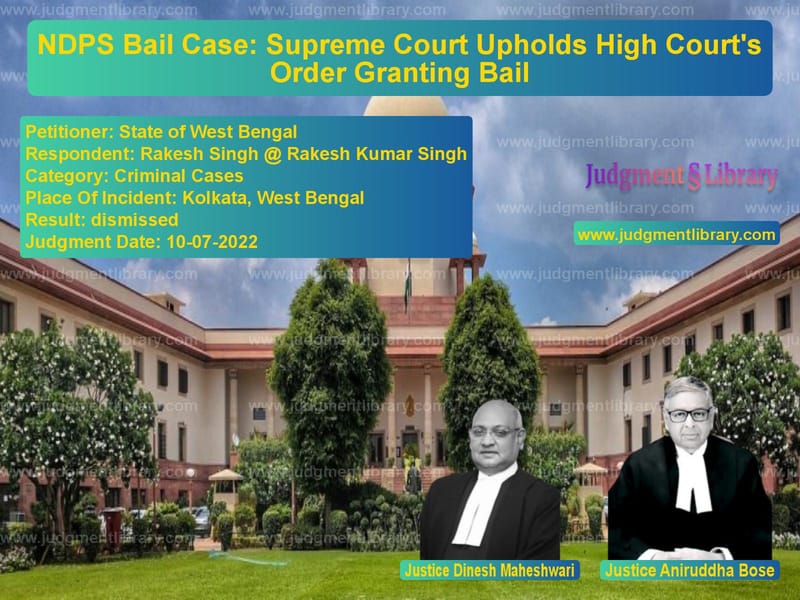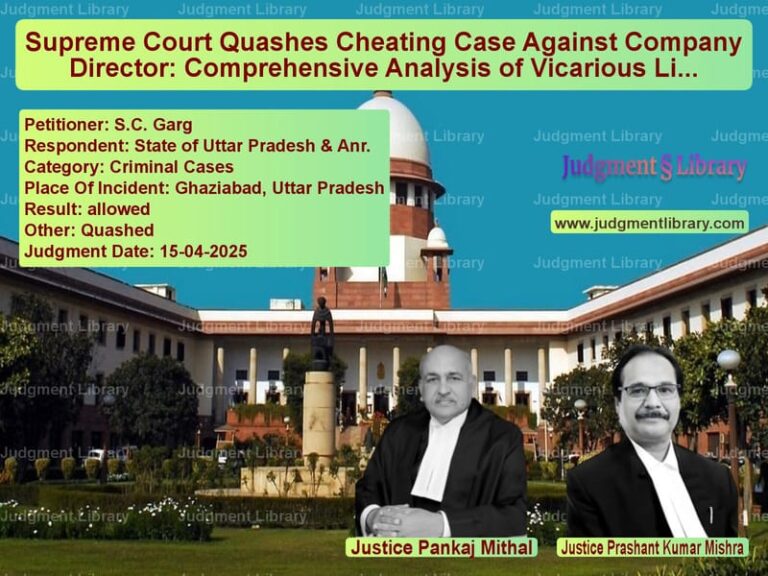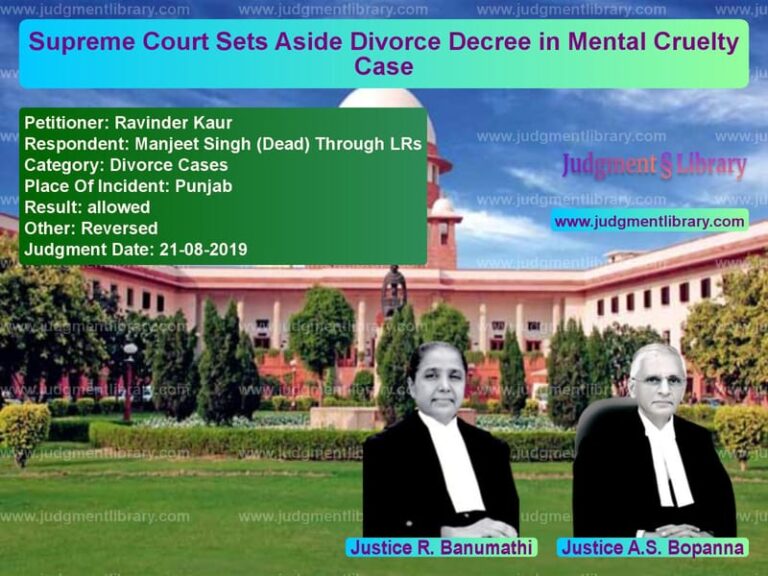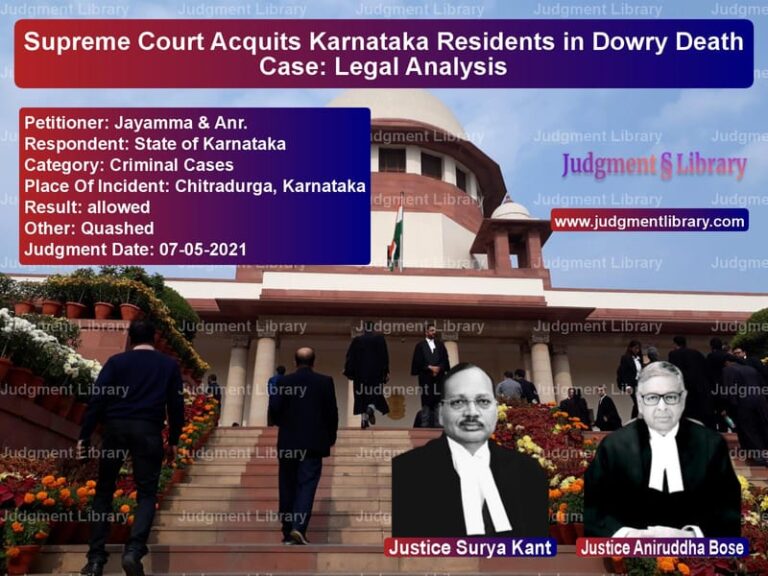NDPS Bail Case: Supreme Court Upholds High Court’s Order Granting Bail
The Supreme Court of India recently upheld the Calcutta High Court’s decision to grant bail to **Rakesh Singh**, accused under the **Narcotic Drugs and Psychotropic Substances Act, 1985 (NDPS Act)**. This case raised important legal questions regarding **bail provisions under the NDPS Act**, the **interpretation of Section 27A**, and the **standard of proof in conspiracy cases**.
Background of the Case
On **February 19, 2021**, Kolkata police detained a vehicle occupied by three individuals and recovered **76 grams of cocaine**. Based on information received during interrogation, the police arrested Rakesh Singh on **February 23, 2021**, accusing him of **financing drug procurement and conspiring to frame political rivals**. The **charge-sheet filed on May 3, 2021**, alleged Singh provided Rs. 8.5 lakhs for procuring cocaine and coordinated its planting in the vehicle.
The accused applied for bail before the Special NDPS Court, which rejected his plea. The **Calcutta High Court granted bail on November 24, 2021**, leading the **State of West Bengal to appeal before the Supreme Court**.
Petitioner’s Arguments (State of West Bengal)
The prosecution opposed the bail, arguing:
- Singh financed **drug procurement** and harbored co-accused Amrit Raj Singh.
- Statements from **witnesses Nasir Khan and Nishat Alam** supported the allegations.
- CCTV footage and **call data records** showed Singh’s involvement.
- The High Court **erroneously disregarded Section 37 NDPS Act**, which imposes strict conditions for bail.
- Singh had a **history of 53 criminal cases** and had previously threatened police officers.
Respondent’s Arguments (Rakesh Singh)
Singh’s defense countered:
- No **contraband was recovered** from his possession.
- Prosecution **changed its narrative**, first implicating the car occupants, then shifting blame to Singh.
- Statements of key prosecution witnesses were **questionable** due to their criminal history.
- Singh’s refusal to give a **voice sample** did not justify denial of bail.
- Past criminal cases were **unrelated to drug offenses**.
Supreme Court’s Observations
The Supreme Court ruled that the High Court’s decision granting bail was **based on reasonable grounds**. Key observations included:
- **Contradictory Prosecution Case:** The **FIR initially accused the vehicle occupants**, but the charge-sheet later claimed Singh orchestrated the drug planting.
- **Lack of Direct Evidence:** The prosecution relied heavily on witness statements without **forensic evidence linking Singh** to drug procurement.
- **Applicability of Section 27A NDPS Act:** The court held that a single alleged drug transaction **does not constitute illicit trafficking** under **Section 27A**.
- **Possibility of Political Motivation:** The case **arose amid political rivalry**, raising concerns of false implication.
Key Legal Precedents Referenced
The court referred to several landmark judgments:
- Union of India v. Shiv Shanker Kesari (2007): Clarified **the applicability of Section 37 NDPS Act** in bail matters.
- State of Kerala v. Rajesh (2020): Held that **bail under NDPS Act requires strict scrutiny** of prosecution claims.
- Tofan Singh v. State of Tamil Nadu (2020): Ruled that **statements recorded under Section 67 NDPS Act are not admissible evidence**.
- Mohd. Sahabuddin v. State of Bihar (2014): Emphasized that **bail in cases with weak prosecution evidence should not be denied**.
Final Judgment
The Supreme Court dismissed the State’s appeal, affirming the High Court’s bail order:
- Singh was granted **bail with strict conditions**, including weekly police reporting and passport surrender.
- The **rigors of Section 37 NDPS Act** did not apply as the quantity of contraband was **intermediate**, not commercial.
- Prosecution evidence was **not strong enough to deny bail**.
- The court emphasized that **denial of bail should not be a substitute for punishment**.
Legal Significance of the Ruling
The ruling reinforces judicial discretion in bail cases and emphasizes **due process** over mere allegations. Key takeaways include:
- **Bail should not be denied mechanically under NDPS Act.** Courts must examine each case on its merits.
- **Prosecution must present concrete evidence linking the accused to drug trafficking.** Mere witness statements are insufficient.
- **Political rivalry cannot be ruled out in cases involving public figures.**
- **Bail conditions should be strict but not oppressive.** Ensuring court presence should be the primary objective.
With this ruling, the Supreme Court reaffirmed its stance that **liberty cannot be curtailed unless there are strong reasons to do so**. The trial will determine Singh’s guilt, but for now, the court found **no compelling reason to keep him in custody**.
Read also: https://judgmentlibrary.com/bail-guidelines-and-judicial-interpretation-in-criminal-cases/
Petitioner Name: State of West Bengal.Respondent Name: Rakesh Singh @ Rakesh Kumar Singh.Judgment By: Justice Dinesh Maheshwari, Justice Aniruddha Bose.Place Of Incident: Kolkata, West Bengal.Judgment Date: 10-07-2022.
Don’t miss out on the full details! Download the complete judgment in PDF format below and gain valuable insights instantly!
Download Judgment: state-of-west-bengal-vs-rakesh-singh-@-rakes-supreme-court-of-india-judgment-dated-10-07-2022.pdf
Directly Download Judgment: Directly download this Judgment
See all petitions in Bail and Anticipatory Bail
See all petitions in Drug Possession Cases
See all petitions in Criminal Conspiracy
See all petitions in Judgment by Dinesh Maheshwari
See all petitions in Judgment by Aniruddha Bose
See all petitions in dismissed
See all petitions in supreme court of India judgments July 2022
See all petitions in 2022 judgments
See all posts in Criminal Cases Category
See all allowed petitions in Criminal Cases Category
See all Dismissed petitions in Criminal Cases Category
See all partially allowed petitions in Criminal Cases Category







